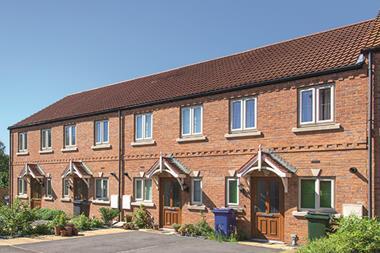The perennial issue of maintaining adequate housing supply has now become a defining issue for the government, with its starter homes initiative the latest attempt to tackle the problem.

The Homes and Communities Agency (HCA) has been tasked with helping deliver 200,000 starter homes by 2020.
While a definition of starter homes is provided within the 2016 Housing and Planning Act and the Planning Practice Guidance of the National Planning Policy Framework (NPPF), having myself recently submitted one of the first starter home applications on behalf of the HCA, it would appear that the requirements relevant to starter home applications remain in flux.
The development plan remains the starting point for decision-making, and so adopted local plans will continue to carry significant weight. The recent written ministerial statement and reference to starter homes delivery in the Planning Practice Guidance are relevant material considerations that form part of the planning balance, although as yet they do not fall under the definition of affordable housing in the NPPF.
Until advanced or adopted local plans contain policies that cater for the provision of starter homes, or the definition of affordable housing is updated, it will be down to local planning authorities to determine whether the positive benefits of delivering starter homes outweighs any perceived harm caused by not providing traditional forms of affordable housing.
The exception site policy does, however, help to swing the planning balance in favour of starter homes, as it enables applications for development on under-used or unviable industrial and commercial land which has not been identified for housing. It also encourages local planning authorities not to seek Section 106 affordable housing and tariff-style contributions that would otherwise apply.
The starter homes initiative also raises a question about the longer-term future of social housing; a problem further compounded by Right to Buy. Registered social landlords have simply not been able to maintain the significant levels of affordable housing delivery needed. Starter homes are the latest initiative to fill this void. The absence of a clause requiring starter homes to be made available at a discounted rate in perpetuity does however raise concerns about how social housing needs are to be met in the future.
That said, this policy represents welcome positive intent from the government and, if carried out effectively, it has the potential to significantly boost the housing market. While it remains to be seen whether this will translate into increased home ownership, it will surely be by this measure that the success of this policy is judged.
Justin Cove is an associate director at Nexus Planning






























No comments yet